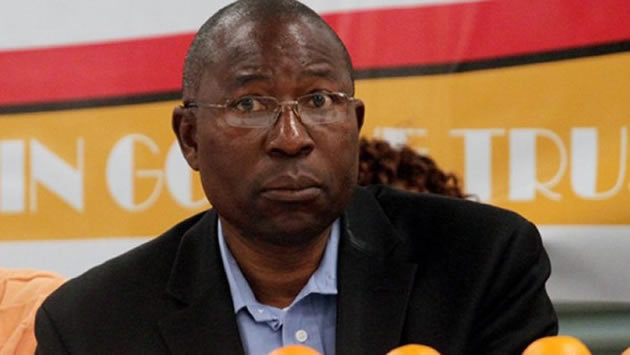More thumbs down for biometric voting

Tendai Mugabe Senior Reporter—
Opposition political parties have added their voice to growing calls for the abandonment of biometric voter registration (BVR) amid concerns the system could be prone to manipulation by hostile nations and untenable due to the country’s low Internet penetration. Lawyers and academics were the first to raise the red flag over the implementation of BVR last week, saying electronic voting could create challenges that may be used to discredit the electoral process.
Opposition parties share similar sentiments.
Renewal Democrats of Zimbabwe (RDZ) leader Mr Elton Mangoma called for the abandonment of the process.
Read more:
In a statement, Mr Mangoma said: “The Constitution of Zimbabwe is never ambiguous on the right to vote by all citizens.
“Procuring electronic gadgets of unknown origins and tendencies to screen people for voting is tantamount to taking away their constitutional rights.”
RDZ reaffirmed the call for the use of national identity cards to vote.
This, according to Mr Mangoma, was much easier and less expensive.
“The only way out is the simple and manageable “munhu-nechitupa-chake formula” considering the time left before next year’s elections,” said RDZ’s statement.
“There are over a million people who are not registered and there will also be need to verify the results. Therefore, Munhu-nechitupa-chake is the way to go.”
Zimbabwe People First founder Mr Rugare Gumbo echoed the same sentiments saying Zimbabwe was not yet ready for such an expensive process which requires high levels of internet penetration.
He said given the country’s financial status, it was plausible to use the old route of manual registration and voting.
“We believe that biometric voter registration is not the best for us now,” he said.
“Internet penetration rate in rural areas is not yet sufficient enough for people to elect a leader of their choice. At this juncture, it’s not the best method of voting.”
Zanu-Ndonga president Mr Danford Musiyarira said he wanted to consult his party membership on the best way forward adding that he was not was not privy on how the BVR process worked.
“We are used to this old process but I want to consult members of my party so that when I say yes people will also know what I am saying yes to.”
Last week, respected lawyer and academic Justice Simbi Mubako shared his experiences when he observed Kenyan elections using the same technology.
Justice Mubako said: “They used electronic voting and there were serious challenges on it. Mind you, Zimbabwe is predominantly rural. How do you implement it given infrastructure and technological requirements when most areas have no electricity? We will end up reverting to the manual system.”
Another interesting dimension on the use of this technology came from Nigeria where the system failed to recognise former President Goodluck Jonathan.
Reports say Mr Jonathan was only able to vote on third attempt.
Issues of hacking are also of major concern in the whole process and in 2010 some scientists at University of Michigan in the United States of America said they hacked Indian electronic voting machines.
Professor J Alex Halderman who led the project said: “We made an imitation display board that looks almost exactly like the real display in the machines. But underneath some of the components of the board we hide a microprocessor and a bluetooth radio.
“Our look alike display board intercepts the vote totals that the machine is trying to display and replaces them with dishonest totals – basically whatever the bad guy wants to show up at the end of the election.”






Comments